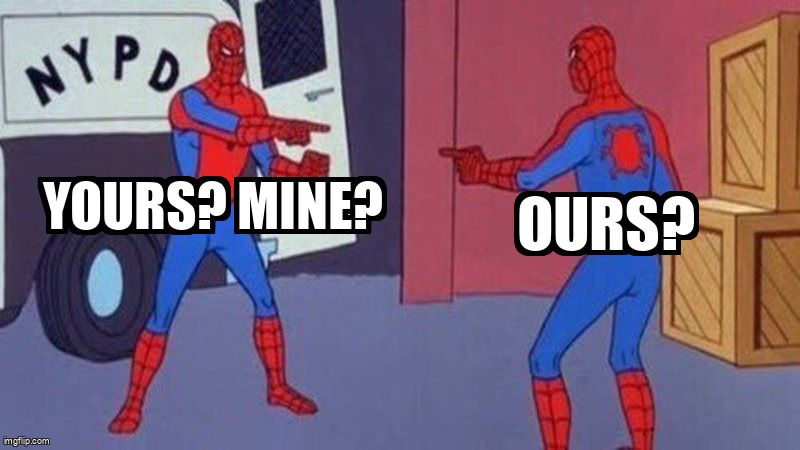
Whose is it?!
In speaking or writing, we often need to show possession: who or what has something.
Possessive nouns, adjectives, and pronouns help us show possession in English:
Possessive noun: Spider-Man's suit
Possessive adjective: That's my suit!
Possessive pronoun: That's mine!

But only possessive pronouns have a superpower: they help us use fewer words.
Which words are possessive pronouns?
English has six possessive pronouns: mine, yours, his, hers, ours, and theirs.
Some people include "its", but many use this one only as a possessive adjective, not a possessive pronoun.

A possessive pronoun replaces a possessive noun phrase (any noun or pronoun that shows possession over something else). That’s how it helps us use fewer words!
Examples
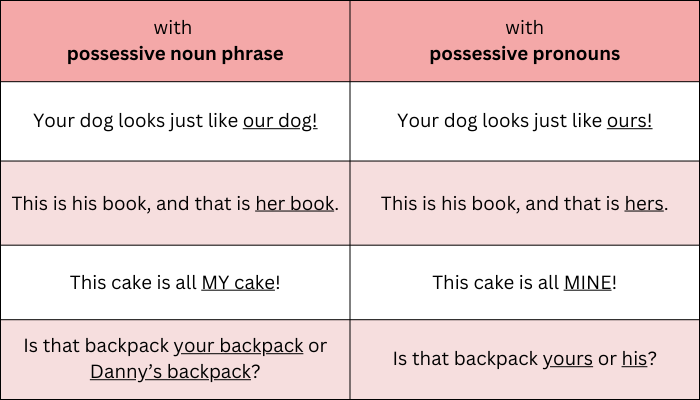 To hear audio description of the table above, click the play button on the audio player below:
To hear audio description of the table above, click the play button on the audio player below:
Example conversation
Have you ever seen small children fight over a toy?
 Photo by David Trinks on Unsplash
Photo by David Trinks on UnsplashThese children would use possessive pronouns. The conversation may go like this:

Child 1: The blue train is mine!

Child 2: It’s not yours, it’s mine!

Child 1: But my friend gave it to me. It was hers, now it’s mine!

Child 2: No, that’s the green train! Dad gave this one to me. It was his when he was a kid, now it’s mine!

Child 1: No, it’s not! Dad says his old trains are for both of us. They’re ours together! But this blue train is mine!
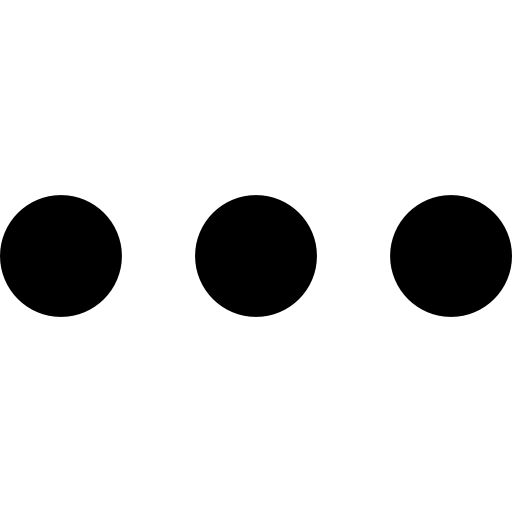
Quiz
Think about this sentence in the children’s fight: "It’s not yours, it’s mine!" "Yours" and "mine" are possessive pronouns, so they replace noun phrases. What words does *yours* replace?
Choosing the right possessive pronoun
In the children’s fight, they use most of the six possessive pronouns.
How do they know which one to choose?

They think of the owner, the one who has something. Then, they match the possessive pronoun to the owner. (In fact, they fight about the owner!)
How to choose a possessive pronoun:
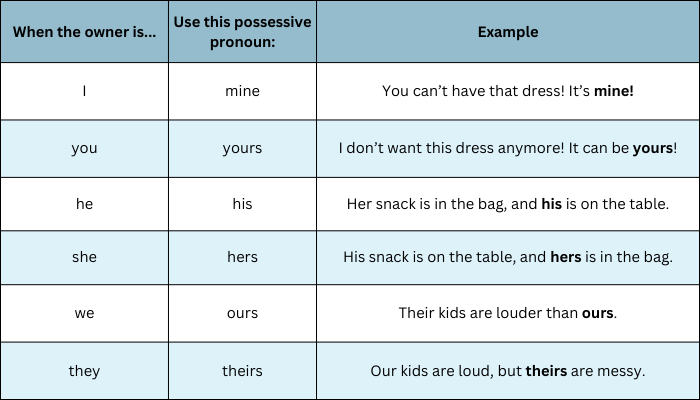 Audio description of this table:
Audio description of this table:
New pronouns!
Some people use pronouns for gender identities that aren't in the traditional list above. When people list their pronouns, the possessive pronoun is usually last: ze/zir/zirs, sie/hir/hirs.
Quiz
Which pronoun should go in the blank spot? "David (male) and Anna (female) each have a cat. His cat is named Katerina, and ____ is named Lionel."
What about "your" and "their"?
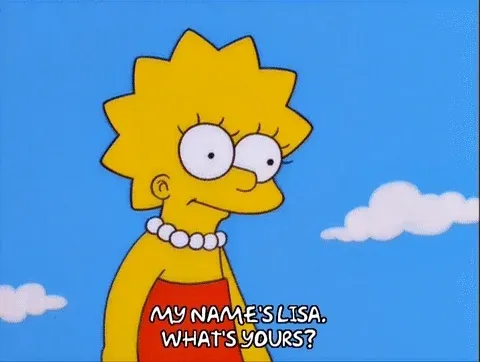
Many examples in this Byte have possessive adjectives: my, your, his, her, its, our, and their. Possessive adjectives are sometimes called possessive determiners.
 Possessive pronouns and possessive adjectives are like many siblings: they look and sound alike, but they act differently.
Possessive pronouns and possessive adjectives are like many siblings: they look and sound alike, but they act differently.
Possessive adjectives always modify (go with) a noun:
That’s my painting. ✅ ⚠️ NOT: That’s my. ❌
I met your dad. ✅ ⚠️ NOT: I met your. ❌
Possessive pronouns don’t go with a noun. You can use them when there is more information before them.
This painting is hers. That's mine.
You met my dad, and I met yours.
"He's a great friend of mine"
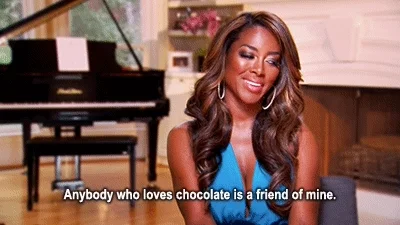
Sometimes we use the preposition of with a possessive pronoun. The pronoun still shows possession.
Examples
This is Alison, and Jack is a friend of hers. = This is Alison, and Jack is one of her friends.
Mr. and Mrs. Novak were donors of ours. = Mr. and Mrs. Novak were some of our donors.
Some paintings of mine are in the new gallery. = Some of my paintings are in the new gallery.
Using of + a possessive pronoun doesn't always make a sentence shorter. It's a different choice for word order and rhythm.
Quiz: Possessive pronouns at the Olympics!
Imagine that you are watching the Olympics on TV. Your country’s soccer/football team is playing!
 Photo by Mario Klassen on Unsplash
Photo by Mario Klassen on UnsplashThe TV announcer says these sentences:
The victory is ours!
They din't see this teammate of theirs by the goal!
This is her second goal today!
The ball isn’t your now!
Quiz
Which ones *correctly use* a possessive pronoun? There can be more than one answer:
Take Action
Possessive pronouns are useful every day. It's time to practice!

Your feedback matters to us.
This Byte helped me better understand the topic.
